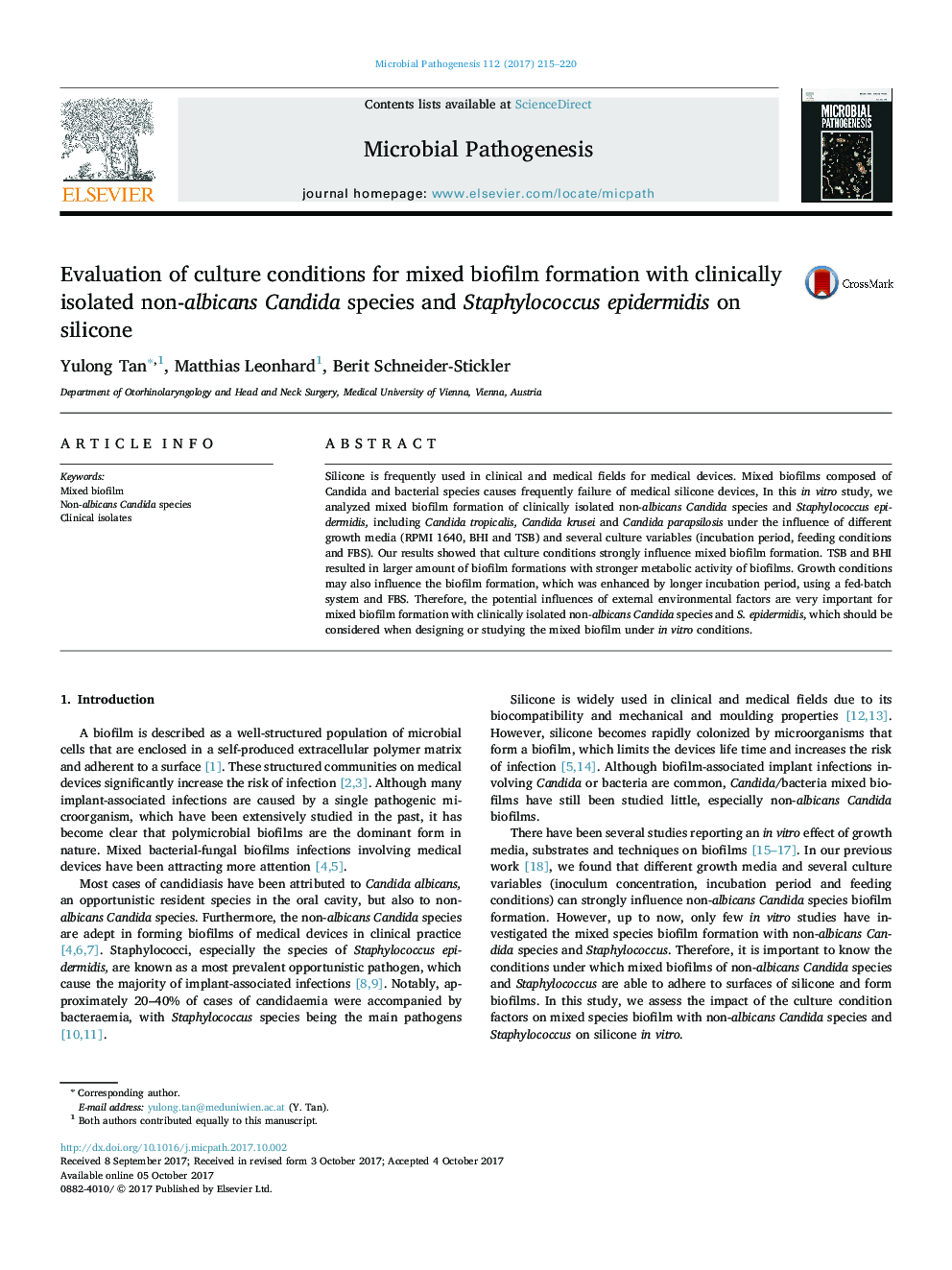| Article ID | Journal | Published Year | Pages | File Type |
|---|---|---|---|---|
| 5673529 | Microbial Pathogenesis | 2017 | 6 Pages |
â¢Culture conditions influenced mixed biofilm formation.â¢TSB and BHI resulted in larger amount of biofilm formations with stronger metabolic activity.â¢Longer incubation period, using a fed-batch system and FBS enhanced biofilm.
Silicone is frequently used in clinical and medical fields for medical devices. Mixed biofilms composed of Candida and bacterial species causes frequently failure of medical silicone devices, In this in vitro study, we analyzed mixed biofilm formation of clinically isolated non-albicans Candida species and Staphylococcus epidermidis, including Candida tropicalis, Candida krusei and Candida parapsilosis under the influence of different growth media (RPMI 1640, BHI and TSB) and several culture variables (incubation period, feeding conditions and FBS). Our results showed that culture conditions strongly influence mixed biofilm formation. TSB and BHI resulted in larger amount of biofilm formations with stronger metabolic activity of biofilms. Growth conditions may also influence the biofilm formation, which was enhanced by longer incubation period, using a fed-batch system and FBS. Therefore, the potential influences of external environmental factors are very important for mixed biofilm formation with clinically isolated non-albicans Candida species and S. epidermidis, which should be considered when designing or studying the mixed biofilm under in vitro conditions.
